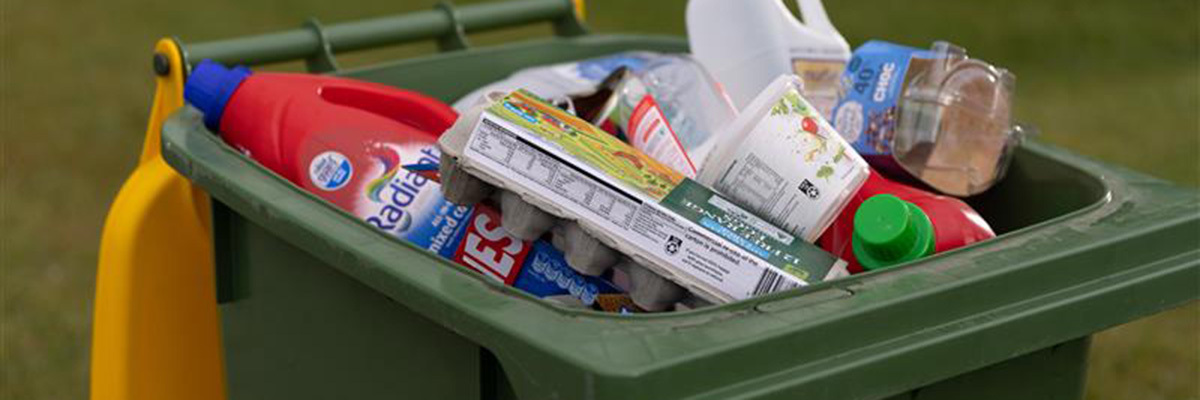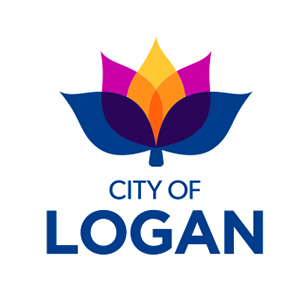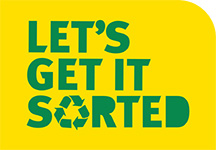Frequently asked questions

What can go in the yellow lid bin?
The following items can be placed in the yellow lid bin:
- Glass containers (empty), including jars and bottles
- Paper, including glossy magazines
- Cardboard (clean, not shredded), including cardboard boxes and pizza boxes
- Firm plastic containers (empty) including drink bottles, shampoo bottles, yoghurt and ice cream tubs
- Steel containers (empty), including tin food cans or pet food tins
- Cans and aerosols (scrunch foil into a ball).
What can’t go in the yellow lid bin?
The following items cannot go in the yellow lid bin:
- Recyclables inside plastic bags
- Soft plastics, e.g. soft plastic film over a meat tray, snack wrappers, cereal box liners
- Food or garden waste
- Clothes and textiles
- Rigid plastics, e.g. toys, kitchenware, plant pots, PVC pipes
- Other types of glass or broken glass, e.g mirrors, light bulbs, pottery, drinkware
- Batteries and hazardous waste e.g all types of batteries, paint and chemicals, gas bottles, asbestos.
- E-waste, e.g. mobile phones, computers, TVs, home appliances, cables and chargers, gaming consoles.
Rinsing - do I need to rinse before recycling?
Food containers, pizza boxes, bottles and all other items need to be empty and have scraps removed before they go into the yellow lid bin. If you are unsure, it’s always a safe option to give items a quick rinse. This helps to prevent contamination and ensures that the recycling process runs smoothly.
Lids on or off - what do I do with lids?
Keep lids on the item and put it in the yellow lid bin. Loose lids should go in the general waste bin.
Recycling symbols - which one do I use?
Several different packaging labels are used in Australia, and some items with a recycling symbol cannot be recycled in the yellow lid bin. When considering whether an item can go in the yellow lid bin, ask yourself what the item is made from. If the packaging is made from paper, cardboard, hard plastic, aluminium and steel or glass, it is likely it can be recycled.
I get so much conflicting information about what is recyclable. How do I know what is correct?
When in doubt check our What Goes in Which Bin or our A to Z of waste disposal page to find out what you can put into the yellow lid bin.
Tetra packs/long life cartons
Can be put in the yellow lid bin. If you return small cartons/poppers to a Container for Change collection site, you can get 10 cents per container.
Food - can it go in my yellow lid bin?
Please do not put food or garden waste into the yellow lid bin. The best place for food is in a home compost bin. If composting isn’t possible, then place food and garden waste in the general waste bin.
Garden waste - can it go in my yellow lid bin?
Please do not put garden waste into the yellow lid bin. The best place for garden waste is in your green waste bin (lime green lid bin). If you don't have a lime green lid bin, you can contact Council to participate in the Opt-In program or place the garden waste in a compost bin or in the red lid general waste bin.
Can I put my recyclables in bags?
Please do not put recyclable items inside plastic bags. Recyclable items that are put in bags before going into the yellow lid bin may end up in landfill.
Soft plastics - what are they?
If it’s soft and you can scrunch it in your hands, then it’s a soft plastic. This includes food packaging, chip and chocolate bar wrappers, plastic films and wraps.
Soft plastics - why can’t I put soft plastics in the yellow lid bin?
Soft plastics get caught in the sorting machinery and can damage it. Currently, Queensland does not have any facilities that can process soft plastics for recycling, so it is best to put plastic bags and food wraps into the general waste bin. More about soft plastics.
Rigid plastics - what are they?
Items around your home made of rigid plastic such as old toys, kitchenware, plant pots and industrial materials like PVC piping can’t be recycled through your yellow lid bin. You can dispose of these by putting them in your general waste bin, taking them to our waste and recycling facilities or donating the items to charity. Some items may be collected from our waste and recycling facilities for resale at the Logan Recycle Market.
Hazardous waste
Household chemicals, pesticides, paints, batteries and e-waste cannot be put in any of your household bins. They can be very dangerous as they pose a hazard to the environment and a safety risk to workers in the sorting facility. More about hazardous waste.
Household chemicals, pesticides and paint
Do not put household chemicals in any of your household bins. They must not be poured down the sink, drain or toilet either. Please dispose of these hazardous items by bringing them to any Council waste and recycling facility or go to Paint and chemical disposal to find out how to dispose of these items.
Batteries
Batteries cannot go in any of your household bins. All batteries are hazardous, from the AAA batteries in your TV remote to your car battery. They contain toxins harmful to the environment and when placed in a household bin, they can cause fires in the bins or trucks that collect them. Please dispose of batteries by bringing them to any Council waste and recycling facility or B-cycle point, or check battery disposal to find out more.
E-waste
Electronic waste refers to small and large household electrical appliances such as TVs, computers, old mobile phones, chargers, and whitegoods. Bring your e-waste to any Council waste and recycling facility or find an e-waste
recycler near you.
Glassware - why can’t I put it in the yellow lid bin?
Don’t put any glassware in the yellow lid bin. This can contaminate other recyclables, as this type of glass melts at a different temperature compared to bottles and jars which have previously contained food or liquid. Glass from household items like drinking glasses, window glass, pyrex and any other glass which has not contained food or liquid, should be placed in the general waste bin.
What is wishcycling?
Wishcycling is the practice of putting something in the yellow lid bin in the hope that it will be recycled. Items such as clothing, kitchen glassware, scrap metal, soft plastics and rigid plastics are not suitable for recycling and should be placed in the general waste bin. In general, if an item is not listed on your Council website as recyclable, it is best to put it in the general waste bin.
Other ways to recycle in my LGA?
Many household items like textiles, batteries, old soft toys, worn out shoes are not suitable for recycling through Council’s kerbside recycling service, but may be recycled through alternative disposal methods. Some retailers and
community organisations provide in-store collection bins where you can leave your items free of charge, and they will be recycled into other usable goods.
Check recyclingnearyou.com.au or download the RecycleMate app to learn what goes in which bin and how to recycle near you.


